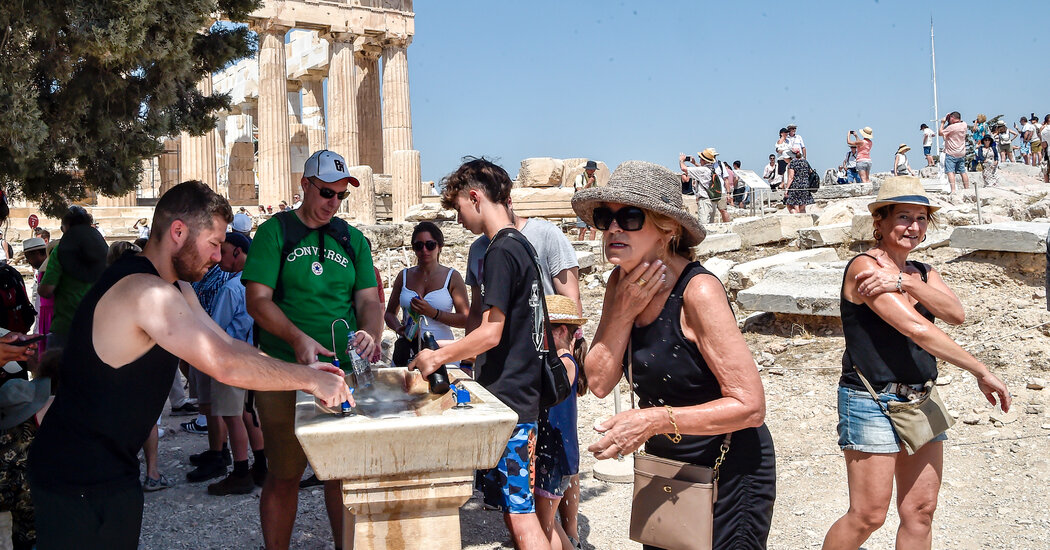As our hot, stuffy plane approached Bodrum, the seaside resort city on Turkey’s southwest coast, I closed my eyes and imagined a cool plunge into the crystalline turquoise waters of the Aegean. It was late July, and I was going home for vacation, despite warnings about the record heat. Southern Turkey is always hot in the summer, but the thought of sea breezes and swimming made it seem a desirable destination — especially after spending the last month in a heat wave in Geneva where air-conditioning is all but banned.
But when the plane door opened at Milas Bodrum Airport and I was hit by the instant scorch of a 113-degree Fahrenheit wind, I knew this summer would be different. My 1-year-old immediately started crying and other passengers gasped as they rushed to the bus that would take us to the terminal.
We weren’t the only ones feeling the heat.
“I can’t say we had a real vacation. We just melted, it was brutal,” said Cem Tosunoglu, a 28-year-old computer engineer from Istanbul. A week earlier, he had cut short a luxury sailboat cruise around Bodrum’s secluded bays because of the excessive heat and the unexpected onslaught of vicious biting horse flies, which thrive in hot environments.
“There was nowhere to escape, we were under attack and had no choice but to go back to the A.C. in our villas,” he said. “Even the seawater was too warm.”
It is the summer of Europe’s tourism rebound, with travelers flocking to the continent in large numbers after three years of pandemic restrictions, despite high airfares and limited accommodations. But the excessive and prolonged heat — which reached 118 degrees Fahrenheit in southern Europe in July — along with wildfires that caused areas to be evacuated in Greece, Italy and Spain, has been ruining vacations.
In recent years, Europe has been experiencing persistent heat waves with the record hitting 119.8 degrees in Sicily on Aug. 11, 2021, according to the World Meteorological Organization, which said the record could be broken this summer as the heat is expected to intensify.
Siestas and portable fans
In mid-July, tourists waiting in line at the Acropolis in Athens collapsed from heat exhaustion, forcing the city’s top attraction to close in the afternoons until the cooler evening hours. Visitors to the Colosseum in Rome fainted while waiting in line. On the Italian island of Sardinia, a man had to be airlifted off a beach after losing consciousness, according to the local newspaper La Nuova…
Click Here to Read the Full Original Article at NYT > Travel…
